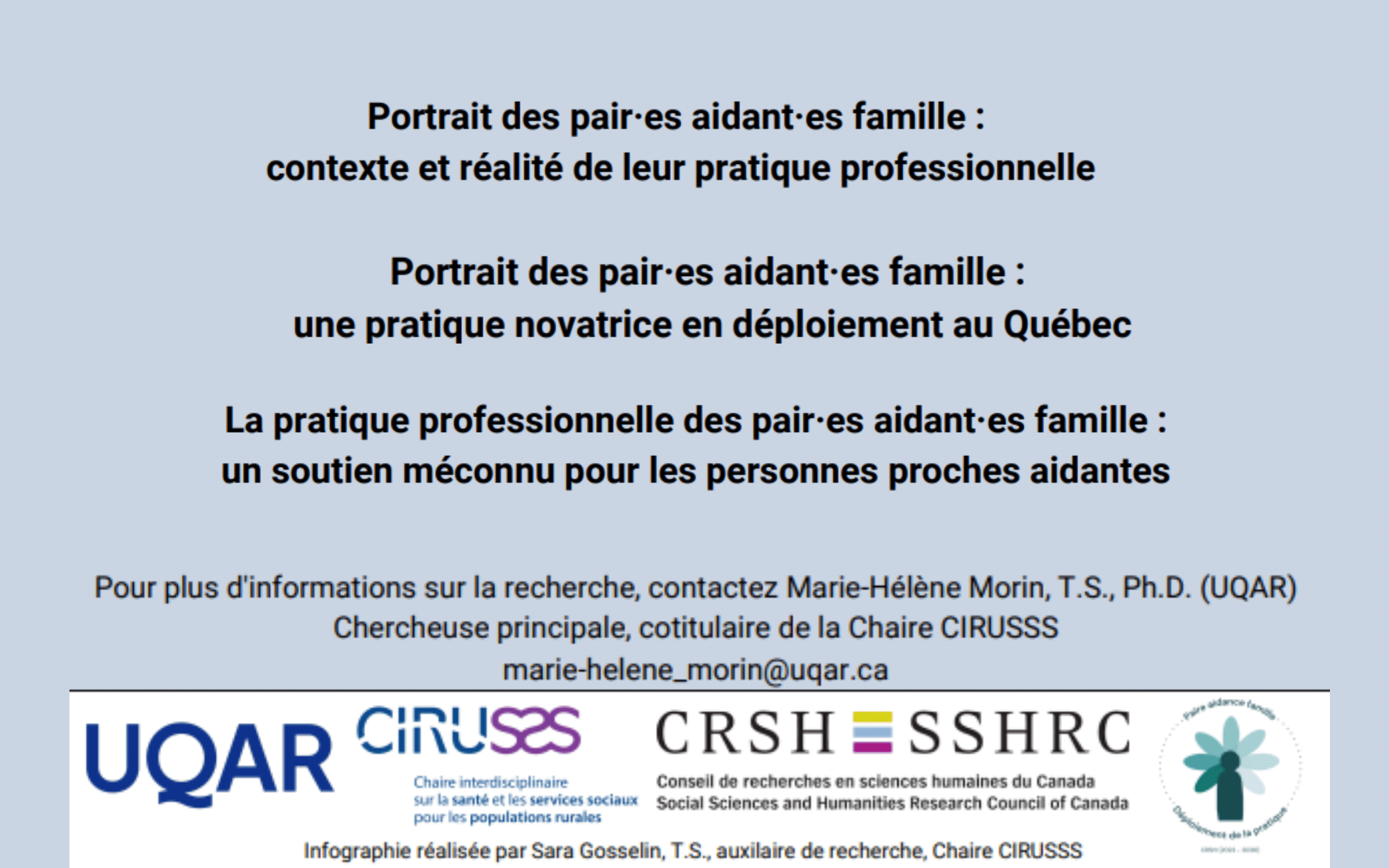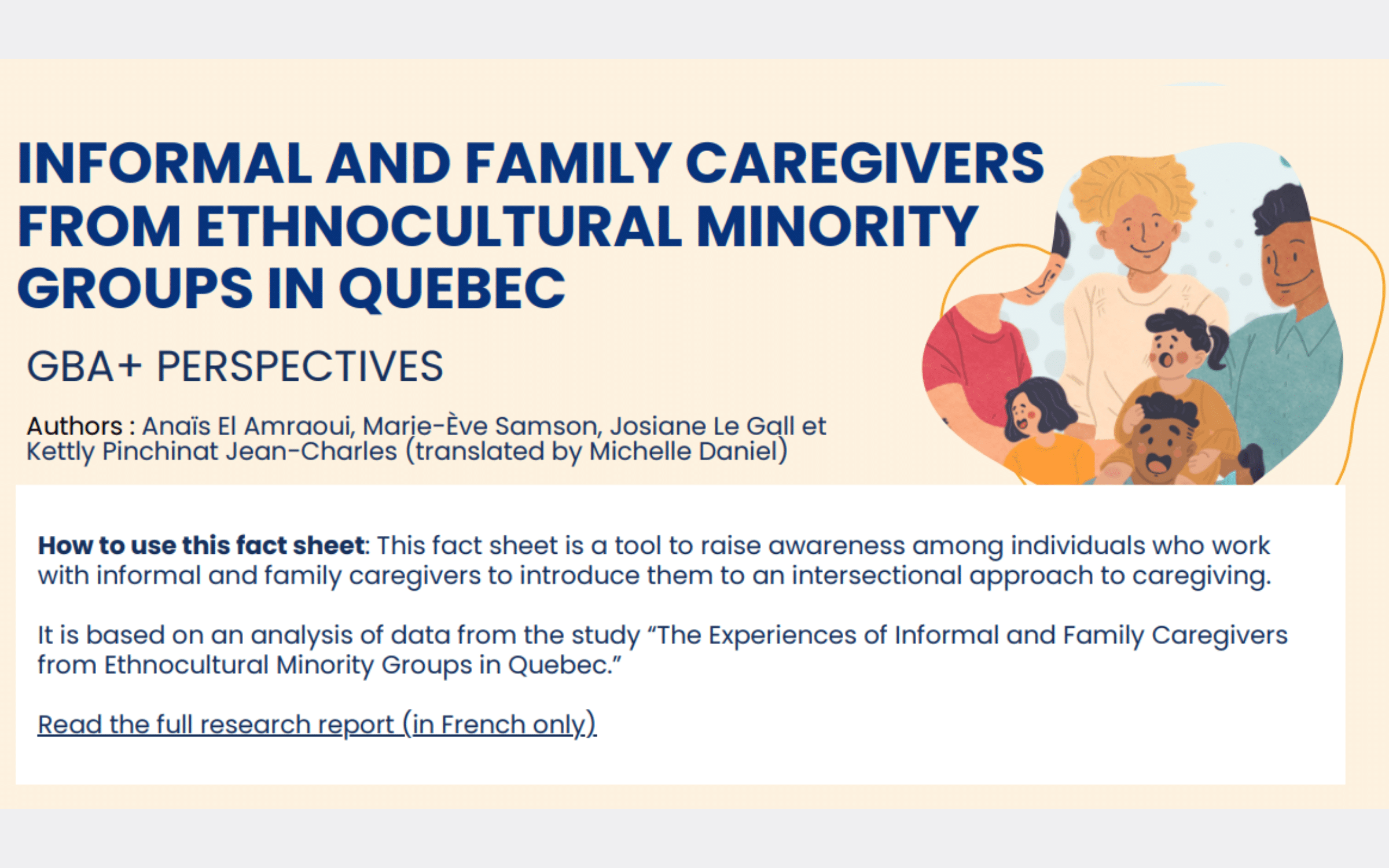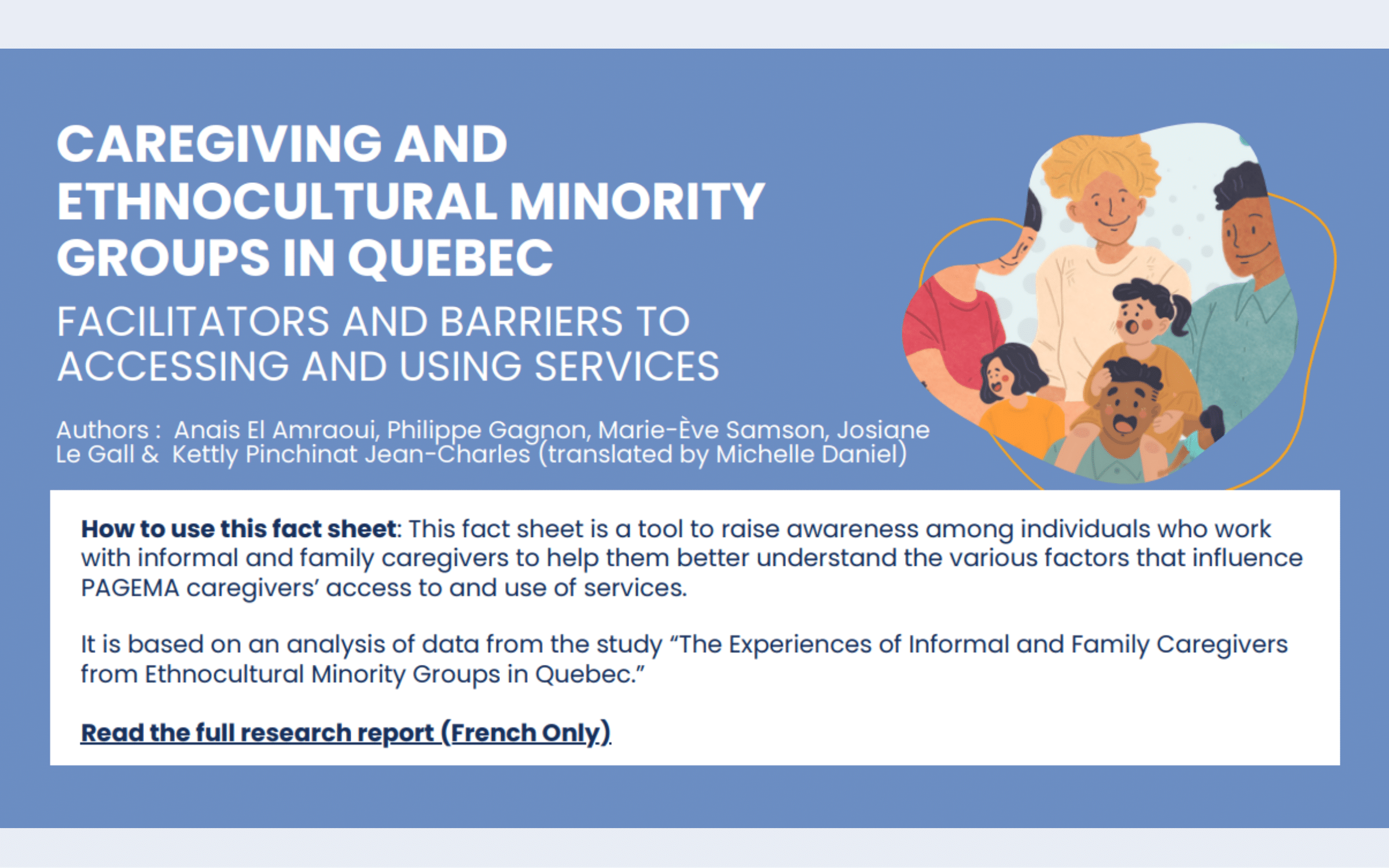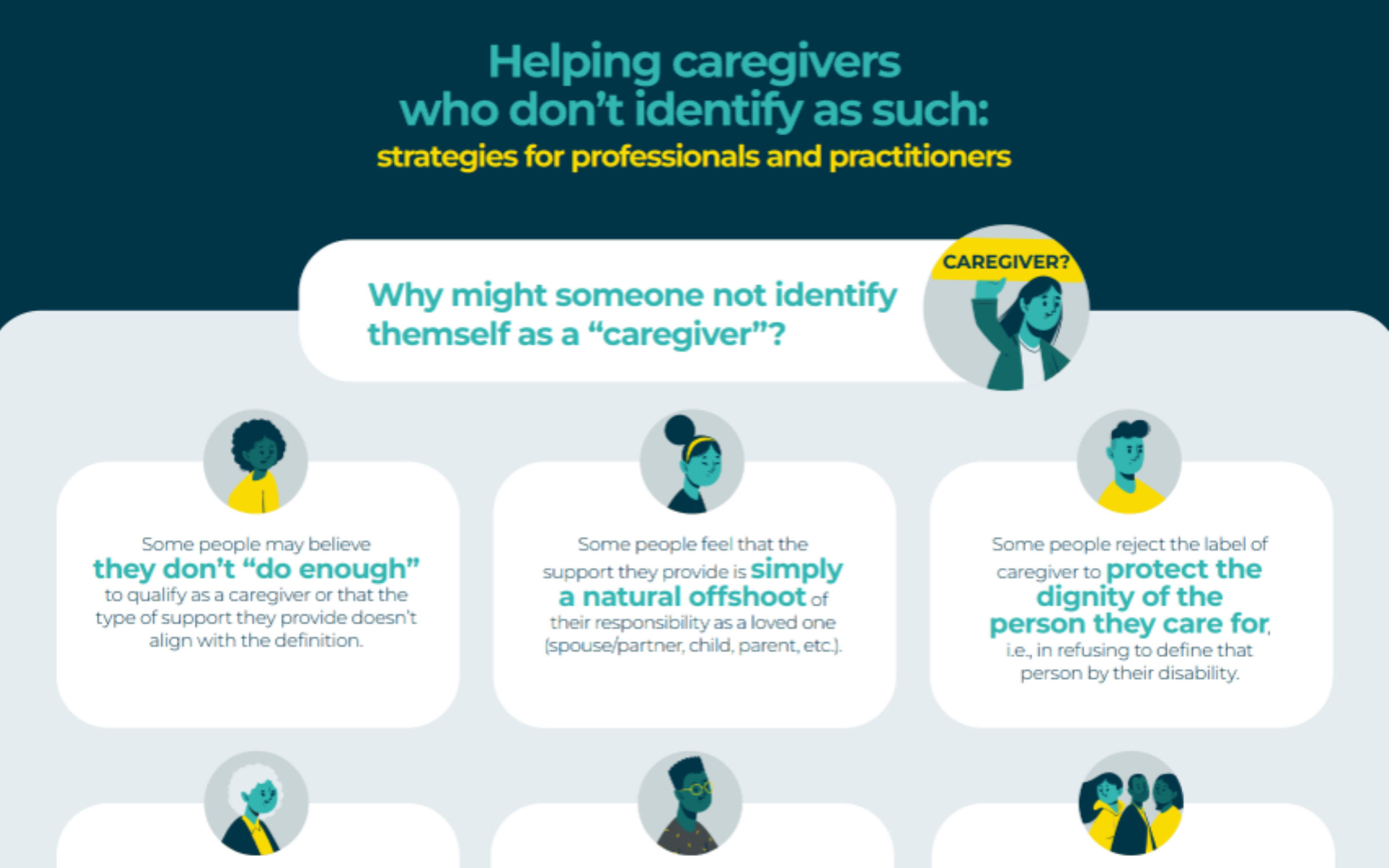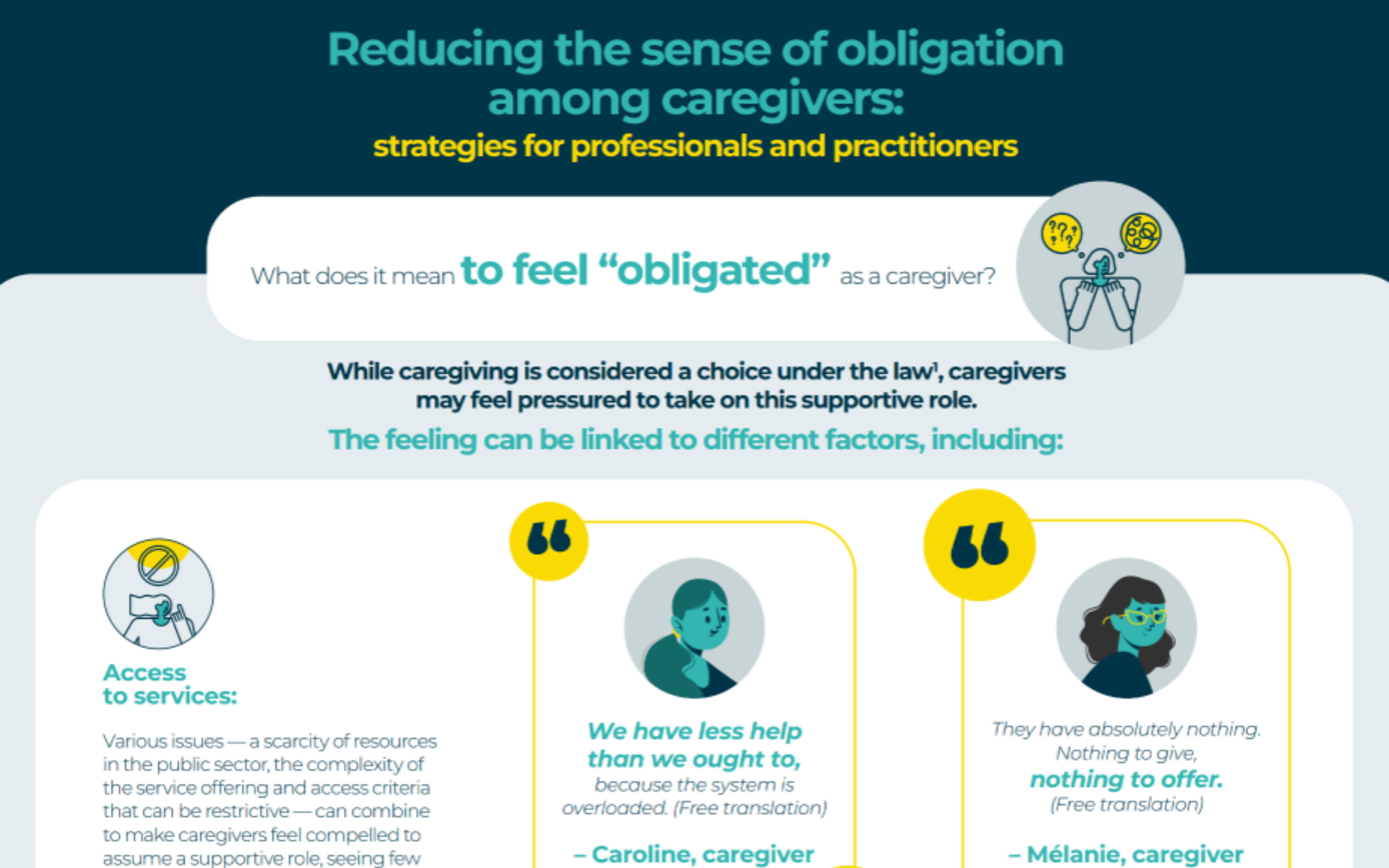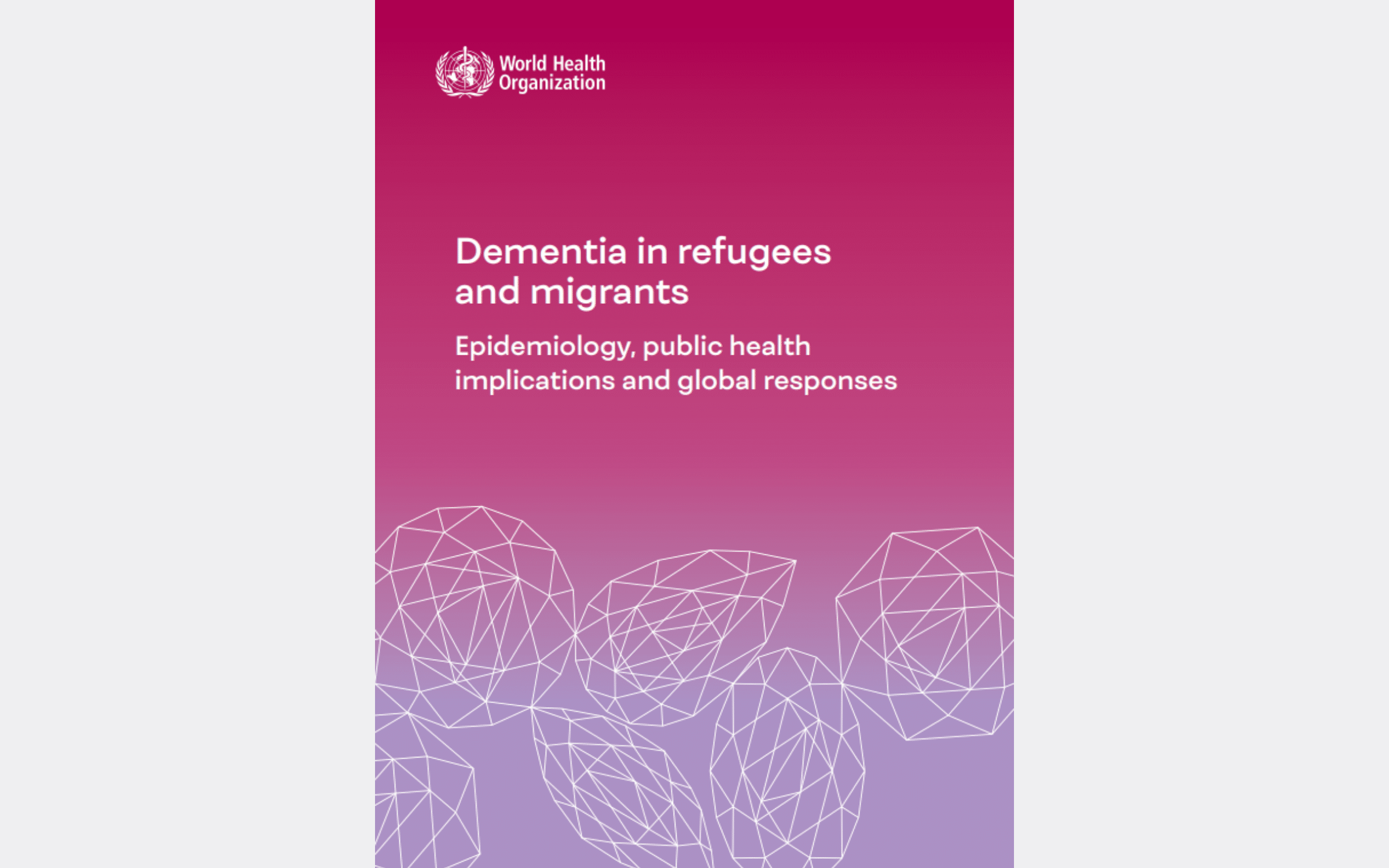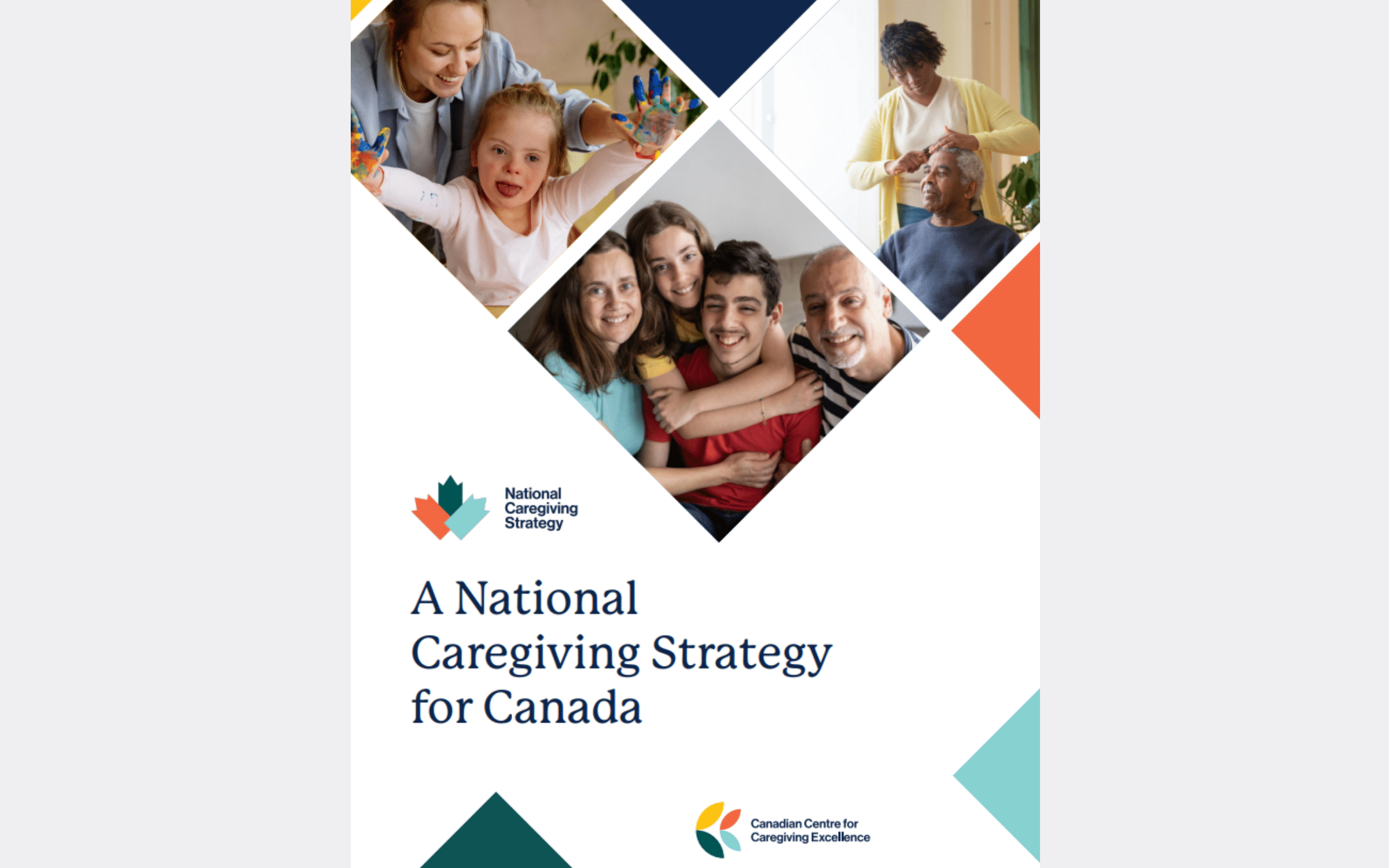Knowledge portal on caregiving
This knowledge portal provides access to reliable, objective and relevant publications on caregiving to stimulate action, inform decision-making and fuel research. Presented in varying formats, the publications originate from Quebec, Canada and abroad, are intended for all of the Observatory’s target audiences and cover all five dimensions of caregiving. New publications are added continuously. Stay tuned!
To learn more about how we select and share third-party publications, see this document [currently in French only].
If you would like to recommend a publication for our knowledge portal, please write to us.

Need help? →
CALL 811 (Info-Santé/Info-Social). If you need support or have concerns or questions about your health or that of a family member or friend, call 811 to speak to a nurse or psychosocial worker. Bilingual and available 24 hours a day, 7 days a week, it’s free and confidential.
To speak to a caregiver counselor about a difficult situation, ask questions or get a referral, call l’Appui’s Caregiver Support Helpline.
Bilingual; open Monday to Friday from 8 a.m. to 6 p.m.
To find community resources offering caregiving information and support near you, consult l’Appui’s Resource Directory or Proche aidance Québec's list of member organizations (in French only).
Sort by
- Most popular
- Most recent
- Observatory publications
Keywords
Reset search
Filters
Authors
Organizations
Year
Dimension(s) of caregiving
Format
Language
Reset filters
Portrait des pair·es aidant·es famille
This series of three infographics documents family peer-support practices in Quebec.
Informal and family caregivers from ethnocultural minority groups in Quebec: GBA+ Perspectives
This fact sheet (6 pages) introduces an intersectional approach to caregiving for stakeholders and professionals who work with caregivers.
Caregiving and ethnocultural minority groups in Quebec. Facilitators and barriers to accessing and using services.
This fact sheet (8 pages) aims to raise awareness among stakeholders and professionals who work with caregivers from ethnocultural minority communities (PAGEMA caregivers) about the various factors that influence their access to and use of services in Quebec.
La navigation par les pair·e·s : un modèle d’accompagnement novateur pour mieux soutenir les personnes proches aidantes appartenant à un groupe ethnoculturel minoritaire (PAGEMA)
This report (226 pages) offers a peer-support model for helping caregivers from ethnocultural minorities and English-speaking communities (PAGEMA caregivers) navigate services.
Qu’est-ce qu’une personne proche aidante ? Mieux comprendre pour mieux se reconnaître
This webinar (31 min) promotes recognition of the role of caregiver among parents who support a dependent child.
Helping caregivers who don’t identify as such: strategies for professionals and practitioners
This fact sheet (1 page), aimed at professionals who work with caregivers, addresses the reasons why some carers may be reluctant to identify with the label and proposes various approaches to improving their support.
Reducing the sense of obligation among caregivers: strategies for professionals and practitioners
This fact sheet (2 pages) explores the sense of obligation that caregivers may feel and the factors that can exacerbate the feeling. It offers professional strategies for helping caregivers cope with feeling “pressured” to assume the role and exploring their options.
Les demandes anticipées d’aide médicale à mourir : les enjeux pour les personnes et leurs proches
This webinar (1h 10m) presented by the Federation of Quebec Alzheimer Societies examines the clinical, social and ethical questions that the anticipated requests for medical assistance in dying (MAID) may raise for both individuals diagnosed with major neurocognitive disorders and their caregivers.
Dementia in refugees and migrants: epidemiology, public health implications and global responses
This report (126 pages) explores the challenges faced by older refugees and migrants with dementia and their caregivers, with a particular focus on cultural and structural barriers to accessing health services.
Supported Decision Making with Persons with Dementia
This webinar (33 min) presents the results of a research project on supported decision-making among people with dementia and their care partners.
Recognition Without Coercion : Navigating Need, Obstacles and Ethical Dilemmas in Caregiver Recognition and Self-Identification
This report (46 pages) from the Quebec Observatory on Caregiving explores the ethical issues related to caregiver recognition and self-recognition, primarily in the Quebec context.
A National Caregiving Strategy for Canada
This report (116 pages) and its accompanying summary (12 pages) make the case for a national caregiving strategy in Canada.

